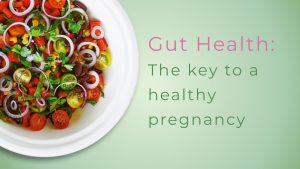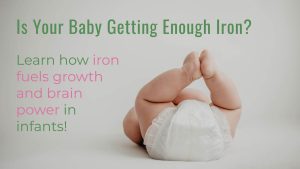What is the First 1000 Days? And Why is it So Important?
Did you know that the right Nutrition in the first 1000 days of a child's life offers an extraordinary window of opportunity?
It's a time of incredible growth and development, shaping their future health in ways we can't even imagine! What is the first 1000 days and why is it so important?
The first 1000 days refers to the time in a child's life, from the moment of conception to their second birthday. It may seem like just a short span, but in reality, it's an incredibly vital and transformative period that shapes the course of a child's entire existence.
How is this possible? There is now an extensive body of evidence to show that experiences and exposures during this period can have life-long consequences for physical health and wellbeing, mental health, social functioning and cognitive development.
The Murdoch Children’s Research Institute’s Centre for Community Child Health developed The First Thousand Days: An Evidence Paper (2017) to summarise the current body of evidence and highlight the factors involved in reshaping our understanding of the significance of the first 1000 days for the health and wellbeing of a mother and child and the implications for long term consequences.
Its aim is to raise awareness of how this critical time in a child’s development, can impact both their short and long-term health. It has highlighted a need for parents and soon-to-be parents to have greater access to information to empower them and help them make the best choices possible. It has also identified a need for greater education for policy makers and the general population.
From conception, the developing foetus and infant are their most adaptable and vulnerable, with the powerful ability to change in the environment, using cues provided by the mother’s physical and mental state to ‘predict’ the kind of world they will be born into and altering their bodily structures accordingly. Numerous factors will affect biological and developmental functioning during the first 1000 days, positively or negatively. These include genetic and epigenetic transmissions from parents and grandparents; the father’s health, maternal health, stress and nutrition in pregnancy; household and environmental chemicals, time spent outdoors, home relationship, financial hardship, outdoor exposure, and neglect or abuse in infancy. Adult conditions such as coronary heart disease, stroke, diabetes, and cancer are now being linked to pathways that originated prior to or during the first 1000 days.
The Importance of Nutrition in the First 1000 Days
Clear evidence recognises that nutrition preconception, throughout pregnancy, and in the infant and young child plays a pivotal role in influencing both the immediate and future health of mum and baby.
Laying Strong Foundations:
Consider the human body as a complex structure, and like any construction, it needs a strong foundation. In the first 1000 days, a child's brain undergoes lightning-fast growth, forming essential neural connections. Proper nutrition during these early days provides the building blocks for healthy brain and neural development. Nutrients like folate, iodine, zinc and choline act as the building blocks for brain and neural tube development, enhancing cognition and early learning capabilities.
Strengthening the Immune System:
Picture a child's immune system as their shield against the world's challenges. Initially it is mum’s immune system that shields her growing baby. What mum eats while pregnant not only strengthens her own immunity but also provides the perfect buffer to safely expose her baby to small amounts of potential immune triggers such as food allergens. During the first 1000 days a number of factors help create a robust immune system for baby, reducing the risk of infections and allergies. These include nutrition during pregnancy, mum’s health, the mode of birth and the choice of feeding immediately post birth. These
Preventing Future Health Issues:
We all want the best for our children, and that includes a healthy and prosperous future. Believe it or not, early nutrition can pave the way for just that. By providing the right nutrition during the first 1000 days, we can reduce the risk of chronic diseases down the road, such as obesity, diabetes, and heart conditions. Think of it as an investment to your baby’s future well-being.
Cognitive Development and Learning Abilities:
Imagine the mind as a sponge, soaking up information and experiences. In the first 1000 days, nutrition plays a crucial role in cognitive development and learning abilities. The brain ‘soaks up’ nutrients like iron, zinc, omega 3, vitamins A, C, and D needed to fuel memory, attention, and problem-solving skills, setting the stage for academic success and a bright future.
Physical Growth and Development:
Witness the miracle of a child growing and flourishing physically. Proper nutrition, with a focus on protein, iron, calcium, and vitamin D, is essential for healthy bone and muscle development. It ensures the child reaches their full growth potential and lays the groundwork for a strong and capable body throughout life.
Emotional Well-being and Behaviour:
Believe it or not, nutrition also influences a child's emotional well-being and behaviour. Nutrients like omega-3 fatty acids and vitamin D play a role in regulating mood and emotions. Supporting your baby’s gut microbiome (those friendly bugs living in harmony within us!) through a diverse range of foods rich in pre and probiotics is also now recognised as pivitol in fostering a positive outlook on life and an emotionally stable and content child.
Food and Taste preferences
Amazingly a mum’s food choices in pregnancy have been shown to influence her baby’s food preferences and acceptance to different tastes. The more diverse a mum’s choice of foods, the more likely her baby will be to eat more varied foods and flavours.
Bonding and Attachment
Remember, it's not just about the food we or our little ones eat; it's about the connections we make during feeding time. Whether breastfeeding or formula-feeding, these moments foster bonding and emotional attachment, opportunities for nurturing positive connections between a child and their caregivers, creating a secure and loving environment, also needed to growth, develop and thrive.
So.... Where’s the catch you ask?
Well, I know it can be tricky to eat well for both you and bub.… between managing your emotions when you’re trying to conceive, dealing with the pressure of friends and family, dealing with morning sickness, exhaustion and reflux when you’re pregnant, not to mention the sleepless nights when you have a newborn....
The Importance of Nutrition in the First 1000 Days
Even though 71% of Australian women believe that pregnancy nutrition is important before you start trying for a baby, only 48% of women who are actively trying for a baby understand what to eat to access the nutrients they need. Only 50% of women trying to conceive are taking essential prenatal supplements to improve nutrient gaps and support foetal development should they fall pregnant. This is scary considering less than 1 in 100 pregnant women in Australia are meeting their needs for key pregnancy nutrients from food alone.
Life is busy and unfortunately nutrition often takes a back seat in our list of priorities. Both in my profession and personally, I have seen the differences that nutrition in the first 1000 days can make to the well being of both mum and bub. It's a time of immense opportunity and responsibility; a chance to lay a strong foundation for our children's future. I believe making positive changes to our food choices and nurturing our relationship with food should be seen as an investment in our future and that of our kids, that we can have control over. It is that thing we can do to be our healthiest self for our kids and lay the foundation for a positive and healthful environment for them to learn and thrive in an ever changing world.
Let’s embark on this journey of parenthood and caregiving by prioritising proper nourishment together.





